The Trust Fund Recovery Penalty: Are You At Risk?
Introduction

The assessment of the § 6672 penalty can be devastating, and in some cases, life changing. Individuals who are subject to the penalty usually state that they were unaware that failure to collect and pay employment taxes to the IRS could result in personal liability for unpaid payroll taxes. The § 6672 penalty, commonly known as the “Trust Fund Recovery Penalty” (“TFRP”) imposes personal liability on individuals who are required to collect, account for, and pay over employment taxes and who willfully fail to collect such tax, or truthfully account for and pay over such tax.The requirements for imposition of the penalty are:
- The penalized person is deemed to be a “responsible person” or someone responsible for having collected and paid the tax in the first place; and
- The penalized person must have willfully failed to collect and pay that tax (Godfrey v. United States, 748 F.2d 1568, 1574 (Fed. Cir. 1984)).
The TFRP provides the IRS with an alternate means of collecting unpaid employment taxes, when the employer is unable to do so, by permitting the IRS to pierce the corporate veil and hold those responsible for the employer’s failure to pay the outstanding taxes (White v. United States, 372 F.2d 513, 516, 178 Ct.Cl. 765 (1967)).
The TFRP usually comes into play when a business is experiencing a financial crisis. The disruption to an employer’s cash flow requires making tough decisions by those in charge of deciding which creditors get paid. The list of creditors usually involves the IRS. Employers are required to withhold income and FICA taxes from employee salaries and must also contribute the employer’s share of FICA taxes. The withheld funds are to be placed in trust with the government designated as the beneficiary. Often times employers will utilize trust funds, which are a ready source of cash, in order to satisfy operating expenses with the justification that the business is merely receiving a loan from the government. In more egregious cases, trust funds have been used to continue to pay for the personal expenses and lavish lifestyle of those who are in charge of paying the bills. These individuals are usually, but not always, the corporate officers, directors or managers of a business, but also include others. Suffice it to say, the IRS views the dissipation of trust funds by those in charge as stealing.
The IRS commitment to pursue those who have failed to account and deposit payroll taxes on behalf of their employees is underscored by the remarks made by the Assistant Attorney General at a Federal Bar Association Conference:
“Since January 2015, the Tax Division has sharpened its focus on civil and criminal employment tax enforcement. As most of you know, these cases involve employers who fail to collect, account for, and deposit tax withheld from employee wages. These withholdings represent 70 percent of all revenue collected by the IRS, and as of September 2015, more than$59 billion of tax reported on Forms 941 remained unpaid. These employers are literally stealing money, knowing that their employees will receive full credit for those amounts when they file their returns. The employers gain an unfair advantage over their competitors and the U.S. Treasury is left holding the bag.”
Acting Assistant Attorney General Remarks at Federal Bar Association Tax Law Conference (March 4, 2016). The 26 U.S.C § 6672 (a) provides in part that:
“Any person required to collect, truthfully account for, and pay over any tax imposed by this title who willfully fails to collect such tax, or truthfully account for and pay over such tax, or willfully attempts in any manner to evade or defeat any such tax or the payment thereof, shall, in addition to other penalties provided by law, be liable to a penalty equal to the total amount of the tax evaded, or not collected, or not accounted for and paid over.”
The following discussion identifies persons who may be at risk, the common mistakes made during an IRS examination and the assessment process as well as procedural options that may be utilized to contest the assessment of the TRFP.
Who Is Responsible For The Collection, Accounting And Payment Of Payroll Taxes?
The assessment of the TRFP requires that the IRS establish that the person against whom enforcement is sought had a duty to collect, account and pay over employment taxes. The term “person” is defined in 26 U.S.C. § 6671(b) and includes:
“an officer or employee of a corporation, or a member or employee of a partnership, who as such officer, employee, or member is under a duty to perform the act in respect of which the violation occurs.”
The courts use the term “person” and “responsible person” interchangeably. While the term “person” is statutorily defined, the latter is not. Rather, the term “responsible person” is a creation of the courts (Slodov v United States, 436 U.S. 238 – Supreme Court 1978). In order to be considered a responsible person, the taxpayer must be “under a duty” to collect, truthfully account for, and pay over” any taxes.
The inquiry will always focus on whether the person has “significant control over the enterprise’s
finances” ((Fiataruolo v. United States, 8 F.3d 930, 939 (2d Cir. 1993), (quoting Hochstein v. United States, 900 F.2d 543, 547 (2d Cir. 1990)).
While many of the cases involve officers, directors and shareholders, the courts have expanded who qualifies as a responsible person to include creditors, employees, accountants and attorneys. If the responsible person could have impeded the cash flow of the business to prevent the trust funds from being squandered, then he or she will be held liable (Thomas v. United States, 41 F.3d 1109, 1113 (7th Cir. 1994)). Furthermore, the TFRP can be assessed against more than one person (Thibodeau v. United States 828 F.2d 1499, 1503 (11th Cir. 1987)). Consequently, each person found liable can be held responsible for the full amount of unpaid trust fund taxes.
The IRS considers the following factors when making a determination of whether a person is a responsible person:
- Does the person(s) have a duty to perform?
- Does the person(s) have the power to direct the act of collecting trust fund taxes?
- Does the person(s) have the accountability for and authority to pay trust fund taxes?
- Does the person(s) have the authority to determine which creditors will or will not be paid?
- Does the person(s) have the status, duty and authority to ensure that the trust fund taxes are paid?
- Is the person(s) an officer, director, or shareholder of the corporation?
- If the person(s) is an officer, what do the corporate by-laws state regarding the person(s) responsibilities as it relates to financial matters?
- Does the person(s) have the ability to sign checks?
- Does the person have the authority to hire and fire employees?
- Does the person have the authority to sign and file the excise tax or employment tax returns, such as Form 941, Employer’s Quarterly Federal Tax Return?
- Does the person control payroll/disbursements?
- Does the person control the corporation’s voting stock? and
- Does the person(s) make federal tax deposits?
While no one factor is dispositive, check-signing authority is considered strong indicia of responsibility, even in cases where the check signer is instructed by a superior not to pay the taxes (Howard v. United States, 711 F.2d 729, 734 (5th Cir. 1983)). The facts in each case are evaluated by the IRS when making a determination as to responsibility. As the Court of Appeals pointed out in Godfrey:
“. . . the case law makes abundantly clear, a person’s “duty” under § 6672 must be viewed in light of his power to compel or prohibit the allocation of corporate funds. It is a test of substance, not form” (Godfrey 748 F.2d at 1576).
What Constitutes Willfulness Under 26 U.S.C. § 6672?
In addition to establishing that the individual is a “responsible person”, it is necessary that the Government prove that the person acted willfully. The Internal Revenue Manual defines “willfulness” in the context of the TRFP as: “intentional, deliberate, voluntary, and knowing, as distinguished from accidental. Willfulness is the attitude of a responsible person who with free will or choice either intentionally disregards the law or is plainly indifferent to its requirements” (I.R.M. § 8.25.1.3.2).
Some of the factors the I.R.S will consider in making a determination of whether a responsible person was willful include:
- Whether the responsible person had knowledge of a pattern of noncompliance at the time the delinquencies were accruing.
- Whether the responsible person had received prior IRS notices indicating that employment tax returns have not been filed, or are inaccurate, or that employment taxes have not been paid.
- The actions the responsible party has taken to ensure its Federal employment tax obligations have been met after becoming aware of the tax delinquencies.
- Whether fraud or deception was used to conceal the nonpayment of tax from detection by the responsible person. Id.
The courts have construed “willfulness” under § 6672 to mean the “voluntary, conscious and intentional act” of paying creditors other than the IRS when the company is financially troubled (Phillips v. IRS, 73 F.3d 939, 942 (9th Cir. 1996) (quoting Davis v. United States, 961 F.2d 867, 871 (9th Cir. 1992)); Klotz v. United States, 602 F.2d 920, 923 (9th Cir. 1979)).
While evidence of willfulness requires proof of a voluntary, intentional, and conscious decision not to collect and remit taxes thought to be owed, it does not require proof of a special intent to defraud or deprive the Government of monies withheld on its account (Godfrey 748 F.2d at 1576, citing Scott v. United States, 354 F.2d at 295). The Court of Claims has consistently rejected the view that “a finding of willfulness entails a showing of evil motive, bad purpose, or calculated malevolence” (Id. at 1576). The focus of inquiry is rather “on the deliberate nature of the individual’s election not to pay over the money and the circumstances of that refusal” (Id. at 1576). Consequently, if a person deemed a responsible party discovers that there are unpaid taxes, the responsible person has an immediate duty to use all unencumbered funds to pay taxes (United States v. Kim, 111 F.3d 1351, 1357 (7th Cir. 1997)). Failure to pay the back taxes will result in personal liability on the part of the responsible person.
The Court of Appeals in Godfrey echoed the White definition of willfulness as meaning “a deliberate choice voluntarily, consciously, and intentionally made to pay other creditors instead of paying the Government.” Godfrey 748 F.2d at 1577, citing Scott 372 F.2d at 521. The Court of Appeals citing Feist v. United States, 607 F.2d at 961 also noted that willful conduct may also include a reckless disregard of an “obvious and known risk” that taxes might not be remitted. Finally, the Godfrey Court citing Bauer v.
United States, 543 F.2d at 150; stated: “Mere negligence in failing to ascertain facts regarding a tax delinquency,” however, “is insufficient to constitute willfulness under the code” (Godfrey 748 F.2d at 1577).
Assessment of The Trust Fund Penalty
When an employer falls behind on the payment of its payroll taxes, the IRS will send out a Federal Deposit Tax Alert Notice to the business. If unanswered a Revenue Officer (“RO”) is assigned to the business to investigate the reason the business in non-compliant. The RO will attempt to bring the business into compliance by directing the business to set up a special trust account for the deposit of employment taxes. If the business fails to come into compliance, the next step will be to conduct an investigation of potentially responsible individuals against whom the § 6672 penalty can be assessed. The RO will then attempt to secure the business’s bank records and other records of the business. The RO will also issue Letter 3586 to the potentially responsible individuals setting a meeting (“Interview”). Letter 3586 is accompanied by Notice 784 “Could You Be Personally Liable for Certain Unpaid Federal Taxes.”
At this point the potentially responsible should seek the advice of a tax attorney. Most individuals are ill equipped to handle an IRS Interview and may unwittingly say something that will be used to establish responsible party status. In some cases, an individual’s statements may serve as a basis for a referral to the Criminal Investigation. Remember, the IRS is not there to help you. The RO will use Form 4180
(“Report of Interview With Individuals Relative to Trust Fund Recovery Penalty”) when conducting TFRP Interview. “The Form is intended to be used as a record of a personal interview with a potentially responsible person.” I.R.M. § 5.7.2.4 1. At the conclusion of the Interview, the individual will be asked to read and sign the Form. If you are not represented, there is a very good chance the IRS will deem you to be a responsible person. More often than not, Form 4180 is used to ensnare a person as a responsible person.
Depending upon the circumstances, and particularly where criminal exposure exists, a good tax attorney may advise the individual not to sign Form 4180. The attorney might also request that the Form be completed outside of the presence of the RO to provide the taxpayers additional time in which measured responses to the questions can be framed. Finally, if the Individual plans on attending the Interview, it is extremely important that he or she be represented by tax counsel.
Following the Interview, the RO will determine whether to proceed with the proposed assessment. If the RO decides to move forward, he or she will generate and send the responsible person a 60 day Preliminary Notice styled as “Letter 1153” together with Form 2751 (“Proposed Assessment of Trust Fund Penalty”) Thereafter, the IRS must wait 60 days after the issuance of Letter 1153 and the Proposed Assessment before issuing a notice and demand for payment. The responsible party has 60 days to respond and 75 days if the letter is addressed out of the country. In response to the Notice the Taxpayer has the following options:
- Panic and take no action (Can be fatal to your chances).
- The individual can sign Form 2751 in which he agrees with the assessment.
- File a protest letter and then proceed to IRS Appeals.
- Request mediation.
- If the individual disagrees with the decision from Appeals, he or she has a right to judicial review.
There are also alternatives with respect to post assessment including Offers in Compromise, Installment Agreement, Partial Pay Installment Agreements and Currently Not Collectible that may serve as a basis for minimizing the financial impact associated with being subject the assessment of the TFRP.
Conclusion
If you are involved in a business that is delinquent on its payroll taxes, there is a high likelihood that you will be investigated by the IRS. Those individuals responsible for management of the business are particularly vulnerable to the TFRP should the business ultimately fail to pay its employment taxes.
When looking into the issue of responsibility, the IRS will most always pick the low hanging fruit. Since the IRS considers failure to pay your employment taxes stealing, the necessity of legal representation cannot be understated. If the IRS is currently conducting an investigation into the employment taxes of your business, it is advisable to get ahead of the curve particularly if there is a risk of a referral to Criminal Investigation of the IRS. A potentially responsible person should never attend an Interview without the assistance and advice of counsel. Many individuals I have counseled simply waited too long. You cannot hide your head in the sand!
By Anthony N. Verni.

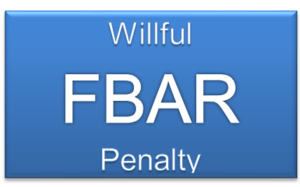
 report his or her foreign financial accounts.
report his or her foreign financial accounts.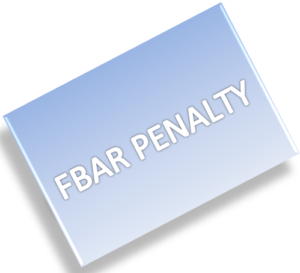
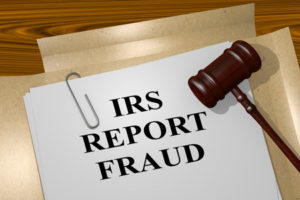
 Serial Tax Return Non-filers.
Serial Tax Return Non-filers.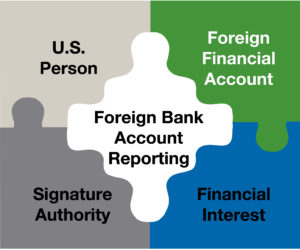 Case Facts.
Case Facts.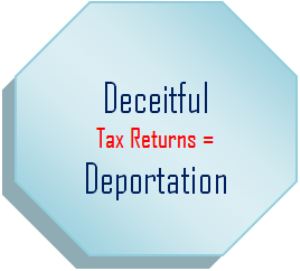 on their tax returns in order to secure large refunds to which they are not entitled. To address this trend, the IRS has vowed to heighten scrutiny with the commitment to go after these taxpayers with vigor. As such, you will see increased civil, and in certain cases, criminal penalties being assessed on the perpetrators.
on their tax returns in order to secure large refunds to which they are not entitled. To address this trend, the IRS has vowed to heighten scrutiny with the commitment to go after these taxpayers with vigor. As such, you will see increased civil, and in certain cases, criminal penalties being assessed on the perpetrators. Back in 2014, I represented a Texas couple in connection with an Appeal from an IRS decision disallowing the Taxpayers’ business expenses and losses associated with the Taxpayers’ ranching operations for the tax years 2011 and 2012 as well as the assessment of the I.R.C. § 6662(a) 20% accuracy related penalty.
Back in 2014, I represented a Texas couple in connection with an Appeal from an IRS decision disallowing the Taxpayers’ business expenses and losses associated with the Taxpayers’ ranching operations for the tax years 2011 and 2012 as well as the assessment of the I.R.C. § 6662(a) 20% accuracy related penalty. 
